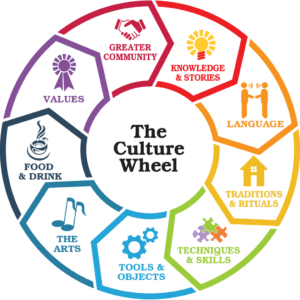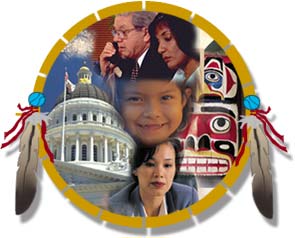 “A story matrix connects all of us. There are rules, processes, and circles of responsibility in this world.
“A story matrix connects all of us. There are rules, processes, and circles of responsibility in this world.
And the story begins exactly where it is supposed to begin. We cannot skip any part.”
—Joy Harjo, First Native American U.S. Poet Laureate (2019—2021), Muscogee Creek. From her poem Crazy Brave: A Memoir.
Culture does matter in so many ways. It influences how we think, what we believe, how we perceive others, and how we act and react. Because we take our own cultural upbringing as a given, we may not be consciously aware of how it can shape (and sometimes distort) our sense of ourselves and others.
This month’s launch of the Native American Resource Collection brings cultural matters into sharp focus. Because Parent Centers interact with an amazing diversity of people, it’s clear why being culturally aware and responsive are prized qualities in our network. May the resources spotlighted in this Buzz be useful to Center staff as they work with families and professionals from all walks of life.
Our best to you all,
The CPIR Team | Debra, Debi, Lisa, Jessica, and Myriam
___________________________
Talking about Culture Competence
Glossary of Cultural Terms
What terms are you likely to hear in talking or reading about cultural competence? What do those terms mean? This short glossary from the National Center for Culture Competence is a great place to find out.
Cultural Matters: Native American Resource Collection
Native American Resources for You
 This month CPIR unveiled the foundational first two tiers of learning in the Native American Resource Collection. We also hosted a webinar (come and listen to it!), where we toured the two tiers and heard from Parent Center Native Specialists about their work with Native communities. For us, it’s been a profound multicultural journey, and we hope it is for you as well.
This month CPIR unveiled the foundational first two tiers of learning in the Native American Resource Collection. We also hosted a webinar (come and listen to it!), where we toured the two tiers and heard from Parent Center Native Specialists about their work with Native communities. For us, it’s been a profound multicultural journey, and we hope it is for you as well.
Tier 1 | Native Culture and Background
The first tier of the collection introduces fundamentals of Native American culture and history. These are critical for Parent Centers to know when planning outreach to American Indian and Alaska Native (AI/AN) communities. What history has shaped AI/AN families? How might Native values impact relationship building and interpersonal communication? What do Parent Centers need to know? The webinars, articles, and infographics in Tier 1 open a “must-have” cultural exploration.
Celebrating Black History Month: A Series on Disability Advocates
The National Disability Rights Network invites all of us to celebrate Black History Month 2020! Every day throughout February, they feature a different Black advocate or attorney who has influenced disability rights. The series also highlights African-American youth who are re-imagining disability rights in ways that reflect their dreams for a more inclusive future.

Don’t Forget About Yourself!
How to Take the Perfect Mental Health Day
Taking a mental health day is not being selfish. As this article asserts, taking the time to attend to yourself recognizes that “this is the best way to keep yourself healthy, functional, and available to others in other times.”
___________________________
The CPIR hopes that you’ve found useful and relevant resources listed in this month’s Buzz from the Hub. Please feel free to write to the editor, Lisa Küpper, at lkupper@fhi360.org to suggest the types of resources you’d like to see in the future. CPIR is listening! Your input is extremely valuable to helping us to craft newsletters that support your work with families.
Debra, Debi, Myriam, Jessica, and Lisa
The CPIR Team
____________________________________________________________
 This eNewsletter from the CPIR is copyright-free.
This eNewsletter from the CPIR is copyright-free.
We encourage you to share it with others.
Center for Parent Information and Resources
c/o SPAN, Inc.
35 Halsey St., Fourth Floor
Newark, NJ 07102
https://www.parentcenterhub.org
Subscribe to the Buzz from the Hub.
See past issues of the Buzz.
____________________________________________________________
Publication of this eNewsletter is made possible through Cooperative Agreement H328R130014 between OSEP and the Statewide Parent Advocacy Network (SPAN). The contents do not necessarily reflect the views or policies of the Department of Education, nor does mention of trade names, commercial products, or organizations imply endorsement by the U.S. Government or by the Center for Parent Information and Resources.

